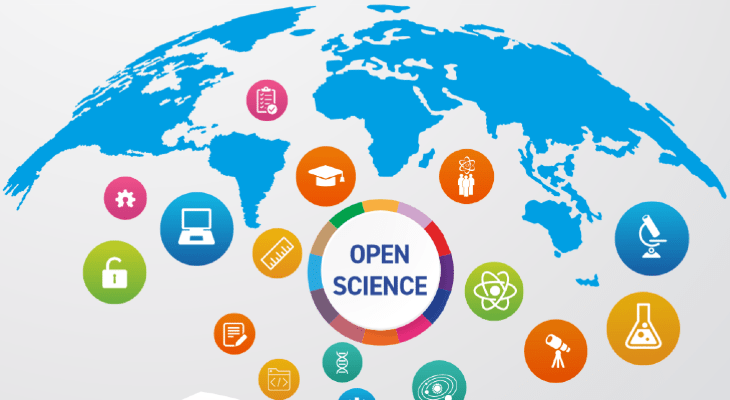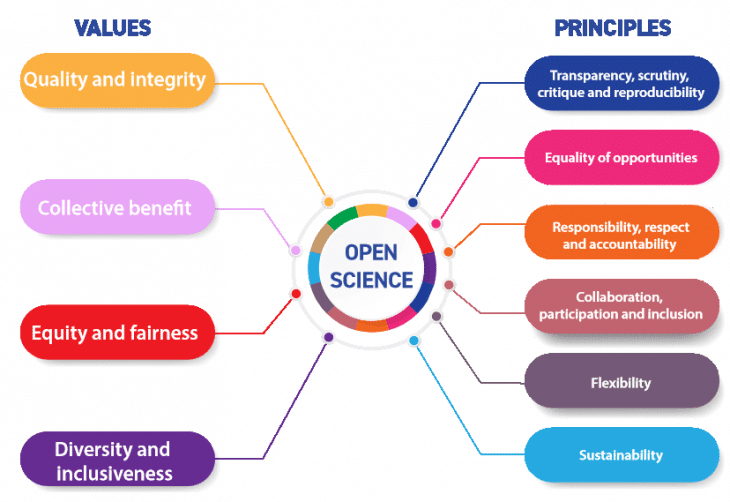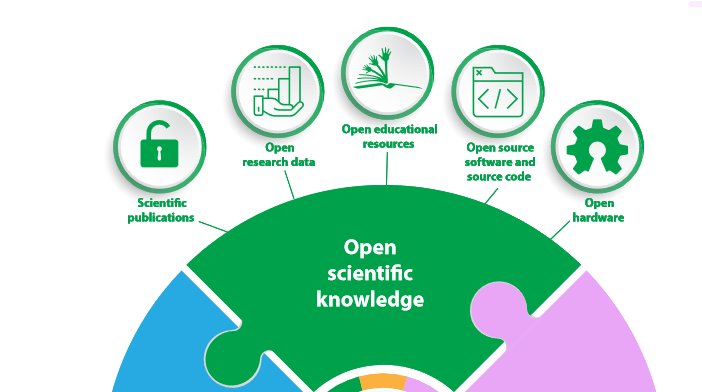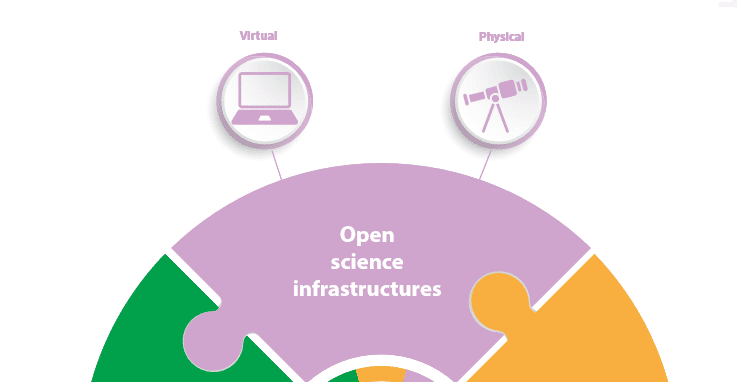UNESCO Recommendation on Open Science

The UNESCO Recommendation on Open Science is the first global standard-setting instrument on open science.
It was developed through a comprehensive regional consultation process. The Recommendation was adopted unanimously by 193 Member States at the General Conference of UNESCO in November 2021.
Why does open science matter?
Open Science stands on three key principles. Open access allows scientific information, data and outputs to be more widely accessible. Therefore, it increases scienti fic collaborations and information sharing.
Secondly, open data allows more reliable harnessing of information, data and outputs. It makes multilingual scientific knowledge openly available, accessible and reusable for everyone.
Finally, through open to society enables the active engagement of all the stakeholders, including non-scientists.
Open Science helps bridge the science, technology and innovation gaps, in particular between developed and developing countries.
UNESCO Recommendation on Open Science framework
The Recommendation provides an international framework for open science policy and practice. It recognizes disciplinary and regional differences in open science perspectives.
The document takes into account academic freedom, gender-transformative approaches and specific scientific challenges. Moreover, it proposes a set of actions conducive to a fair and equitable operationalization of open science at all levels.
It contributes to reducing the digital, technological and knowledge divides existing between and within countries.
In addition, the Recommendation outlines a common definition, shared values, principles and standards for open science at the international level.
The core values of open science are quality and integrity, collective benefit, equity and fairness, diversity and inclusiveness.

A set of guiding principles for open science provides a framework for enabling conditions and practices that supports these values.
These guiding principles are grouped into six categories.
- Transparency, scrutiny, critique and reproducibility,
- Equality of opportunities
- Responsibility, respect and accountability
- Collaboration, participation and inclusion
- Flexibility and
- Sustainability.
UNESCO Open Science definition
The Recommendation defines open science as
an inclusive construct that combines various movements and practices aiming to make multilingual scientific knowledge openly available, accessible and reusable for everyone, to increase scientific collaborations and sharing of information for the benefits of science and society, and to open the processes of scientific knowledge creation, evaluation and communication to societal actors beyond the traditional scientific community.
The UNESCO's definition includes all scientific disciplines and aspects of scholarly practices from basic and applied sciences, to natural and social sciences and the humanities.
Key pillars of open science
Open science builds on four pillars: open scientific knowledge, open science infrastructures, science communication, open engagement of societal actors and open dialogue with other knowledge systems. Let's consider the most important pillars in the context of the Western Balkans.
 Open scientific knowledge refers to
Open scientific knowledge refers to
open access to scientific publications, research data, metadata, open educational resources, software, and source code and hardware that are available in the public domain or under copyright and licensed under an open licence that allows access, re-use, repurpose, adaptation and distribution under specific conditions, provided to all actors immediately or as quickly as possible regardless of location, nationality, race, age, gender, income, socio-economic circumstances, career stage, discipline, language, religion, disability, ethnicity or migratory status or any other grounds, and free of charge.
In addition, open scientific knowledge also refers to the possibility of opening research methodologies and evaluation processes.
Open science infrastructure
Open science infrastructures refer to
shared research infrastructures (virtual or physical, including major scientific equipment or sets of instruments, knowledge-based resources such as collections, journals and open access publication platforms, repositories, archives and scientific data, current research information systems, open bibliometrics and scientometrics systems for assessing and analysing scientific domains, open computational and data manipulation service infrastructures that enable collaborative and multidisciplinary data analysis and digital infrastructures) that are needed to
support open science and serve the needs of different communities.

The critical components of open science infrastructures provide essential open and standardized services to manage and provide access, portability, analysis and federation of data, scientific literature, thematic science priorities or community engagement.
Among these are open labs, open science platforms and repositories for publications, research data and source codes, software forges and virtual research environments, and digital research services.
Finally, open science practices and scientific knowledge has to reach a wider audience, including scholars in other research fields and decision-makers. Therefore, there is a need of introducing focused science communication channels.
Key objectives of the Recommendation
The key objectives and areas of action of this Recommendation are valuable food for thought for, both scholars and policymakers:
- promoting a common understanding of open science, associated benefits and challenges, and diverse paths to open science;
- developing an enabling policy environment for open science;
- investing in open science infrastructures and services;
- investing in human resources, training, education, digital literacy and capacity building for open science;
- fostering a culture of open science and aligning incentives for open science;
- promoting innovative approaches for open science at different stages of the scientific process;
- promoting international and multi-stakeholder cooperation in the context of open science and with a view to reducing digital, technological and knowledge gaps.
